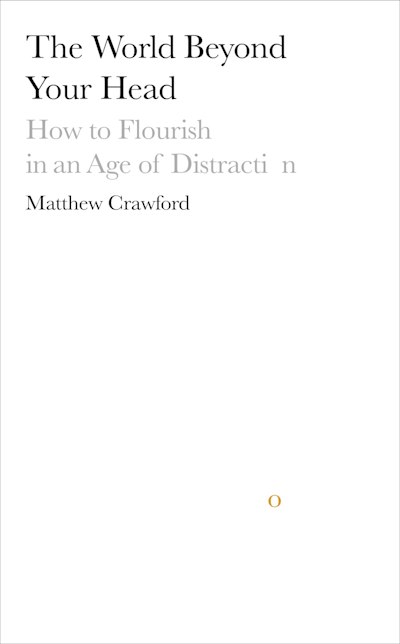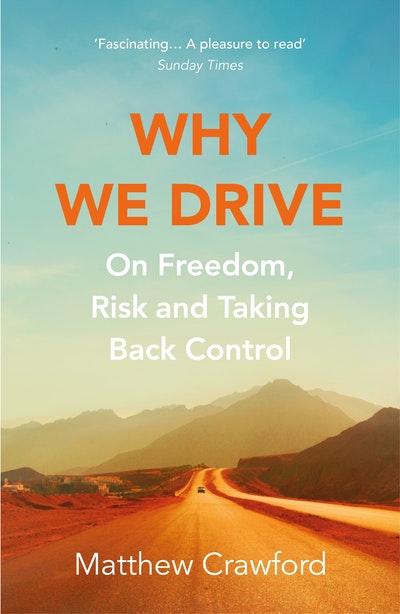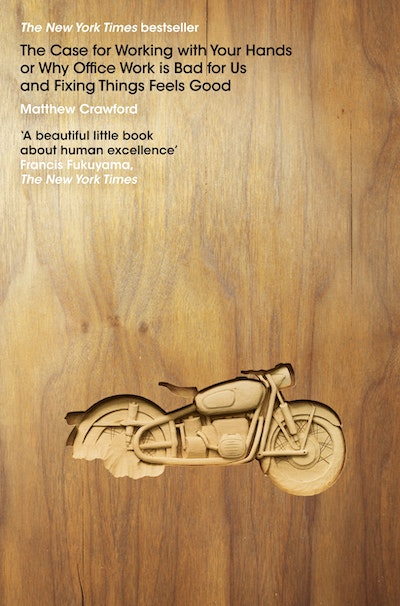The World Beyond Your Head
How to Flourish in an Age of Distraction
- Published: 9 April 2015
- ISBN: 9780241959459
- Imprint: Penguin eBooks
- Format: EBook
- Pages: 320
The most cogent and incisive book of social criticism I've read in a long time: accessible, demanding, and rewarding. Reading it is like putting on a pair of perfectly suited prescription glasses after a long period of squinting one's way through life
The Week
Incisive. It's philosophy as an intervention in issues of the day
Chronicle of Higher Education
Crawford has a point . . . adverts are everywhere, so much so you have to pay to escape. There are real benefits to silence. No great book, or idea comes without a degree of silence. Independent thinking is not possible without it. Perhaps this is why so many corporations and institutions demand our attention - and why we should protect it
Scotsman
Crawford makes the crucial point that this is a political problem. The creators of smartphones, social networks designed to hook us, the firms buying ads on escalator handrails and media organizations desperate for your clicks and shares are all helping themselves to something that's ours - the limited resource of our attention - to try to turn a profit
Oliver Burkeman, Guardian
Very entertaining . . . [with] many interesting insights
The Times
Both impassioned and profound
Washington Post
An enormously rich book, a timely and important reflection on an increasingly important subject. Pay attention.
New Criterion
Peppered with startling insights
Chicago Tribune
A cultural enquiry of rare substance and insight
Booklist (starred review)
Fresh and extremely enlightening. What is most satisfying is that technology is not blamed for the modern deluge of distractions - it is discussed as the cumulative effect of a number of influences found within Western culture. Illuminating
Library Journal (starred review)
[An] astute, acerbic cultural critique . . . both timely and passionate
Kirkus
Readers will feel rewarded for spending the time with a text this rich in excellent research, argument, and prose
Publishers Weekly (starred review)
There are now many books reminding us to pay attention but Crawford also reminds us of how we lost attention in the first place - and putting the problem in its historical context makes the case more compelling
Michael Foley, author of 'The Age of Absurdity'
Absolutely superb: elegant, surprising, hard-hitting and very important
Guy Claxton, author of 'Hare Brain, Tortoise Mind'




